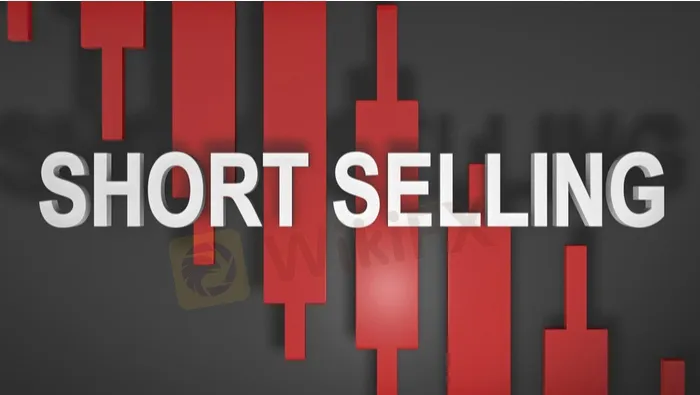简体中文
繁體中文
English
Pусский
日本語
ภาษาไทย
Tiếng Việt
Bahasa Indonesia
Español
हिन्दी
Filippiiniläinen
Français
Deutsch
Português
Türkçe
한국어
العربية
Short Selling: What Experts Should Note Pt. 1
Abstract:The first thing to consider before learning this approach, short selling is an advanced strategy for trading and investing experts. Short selling is a method for traders to speculate.

Meanwhile, for portfolio managers or investors they use hedge to battle the downside risk in the long position. But why do traders need short selling to speculate? Speculating means you will meet the possibility of substantial risk and in the trading. In other words, hedging is a common transaction that involves placing an offsetting position to limit risk.
The position in short selling begins by borrowing shares of assets or stock investors believe will decrease in value. Next, the investor sells these borrowed stocks or assets to buyers. In this situation, traders could start bidding the lower cost because they bet that the price would continue to jump. Because trading profit is infinite, the loss in short selling is also infinite. But from where do the sellers open the position? Usually they open short selling from a broker-dealer. They hope that they could somehow buy back if the price declines.
The form should be borrowed shares because it simply cannot sell shares that do not exist.In order to close a short position, a trader could buy the shares back on the market. Traders should be aware about the account and interest charged by the brokers. Furthermore, in order to start short selling, a trader should own a margin account. Margin account is basically a brokerage account the broker lends the customer to pay stocks or other products in finance.
When the position opens, a trader sometimes must pay for charges too. It is important to know that some financial institutions set minimum values for the margin account they maintain known as the maintenance margin. These financial institutions are FINRA (Financial Industry Regulatory Authority Inc, NYSE (The New York Stock Exchange), and the Federal Reserve.

Disclaimer:
The views in this article only represent the author's personal views, and do not constitute investment advice on this platform. This platform does not guarantee the accuracy, completeness and timeliness of the information in the article, and will not be liable for any loss caused by the use of or reliance on the information in the article.
Read more

WikiEXPO Dubai 2024 will take place soon!
2 Days Left!

Italian Regulator Warns Against 5 Websites
The Italian regulator, CONSOB has issued a warning against five websites offering unauthorized financial services. This regulatory action aims to protect the public from fraudulent activities.

WikiEXPO Dubai 2024 is coming soon
3 Days Left!

Trader Exposes Unethical Practices by STP Trading
A recent allegation against STP Trading has cast doubt on the firm's business practices, highlighting the potential risks faced by retail traders in an increasingly crowded and competitive market.
WikiFX Broker
Latest News
Hackers Charged for $11M Crypto Theft Using SIM-Swaps
Role of Central Banks in the FX Market
FCA Alerts Against Sydney FX
What Makes Cross-Border Payments Easier Than Ever?
Trader Exposes Unethical Practices by STP Trading
Bitcoin Nears $100,000: A Triumph of Optimism or a Warning Sign?
Malaysian Man Loses RM113,000 in Foreign Currency Investment Scam
Mastercard Partners with JPMorgan for B2B Cross-Border Payments
FCA Identifies Clone Firm Exploiting Admiral Markets' Credibility
Coinbase Under Scrutiny Amid Wrapped Bitcoin Delisting Controversy
Currency Calculator


